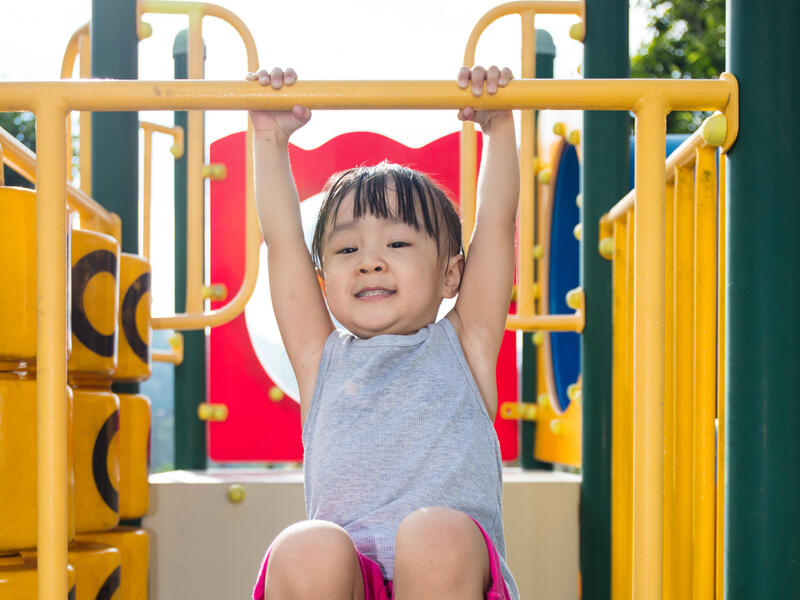Young children can get exercise and have a lot of fun playing outdoors. However, whether your 2- to 3-year-old is playing in the backyard, on a playground or swimming in a pool, there are potential hazards that could cause your innocent explorer injury.
When playing outside, your little one is not worried about the heat or safety hazards. They are just excited and focused on what they are doing and what to play with next. It’s up to you to make sure they can explore and play without getting hurt or putting themselves in a dangerous situation.
Points for parents to remember
- One of the most important things you can do is provide constant supervision when your child is playing outside.
- Fenced areas are best.
- Backyard is best. Avoid letting your child play in the front yard if there is not a fence and a lot of traffic. Children younger than 3 do not have impulse control and don’t understand the consequences of running into the street for a stray ball.
- “Stranger danger” is hard for children this young to understand. At this age, children cannot tell who is a safe stranger or who is not. Teach your child to stay close to you in public places.
General outdoor safety
- Apply sunscreen on your child’s exposed skin before going outdoors, and reapply as necessary based on product instructions (SPF 30 or higher).
- Use a hat and comfortable clothing to protect your child’s skin from the sun’s rays.
- Apply bug spray (DEET-free) on your child’s exposed skin but avoid spraying your child’s face.
- Have water easily accessible and keep your child hydrated.
- Dress your child in appropriate clothing for the season.
- Keep your child a safe distance from outdoor grills. Prevent your child from playing with the outdoor grill by keeping the grill covered when not in use.
- Keep lawn equipment and poisons in a locked area.
- Set up boundaries and let your child know the borders of their play space.
- Use protective helmets and pads (knee and elbow) for outdoor riding activities.
Playground safety
- Inspect playground equipment for loose parts, rust or splinters.
- Use mulch, wood chips, or shredded rubber to cushion your little explorer’s spills and falls.
Water safety
- Kids need constant supervision around water. Young children are especially vulnerable as they can drown in two minutes in less than one inch of water.
- Have your child wear a life jacket at all times when around a pool or other body of water.
- If you have a pool, be sure it’s enclosed on all sides with a fence and a locked gate. The pool gate should be a self-locking latch and locked at all times. You can also install door alarms or pool alarms to alert you if your child has gone outdoors.
- Provide your child swimming lessons. At this age, a class that involves the child and the parent is best.
For more information on safety for your young child, call Sanford Children’s Safety Center at (605) 312-8390.
Learn more
- Water safety tips keep kids water smart
- Banish bug bites: Helpful tips for protecting children
- Teach your preschooler to be ‘stranger smart’
…
Posted In Children's, Family Medicine, Parenting
